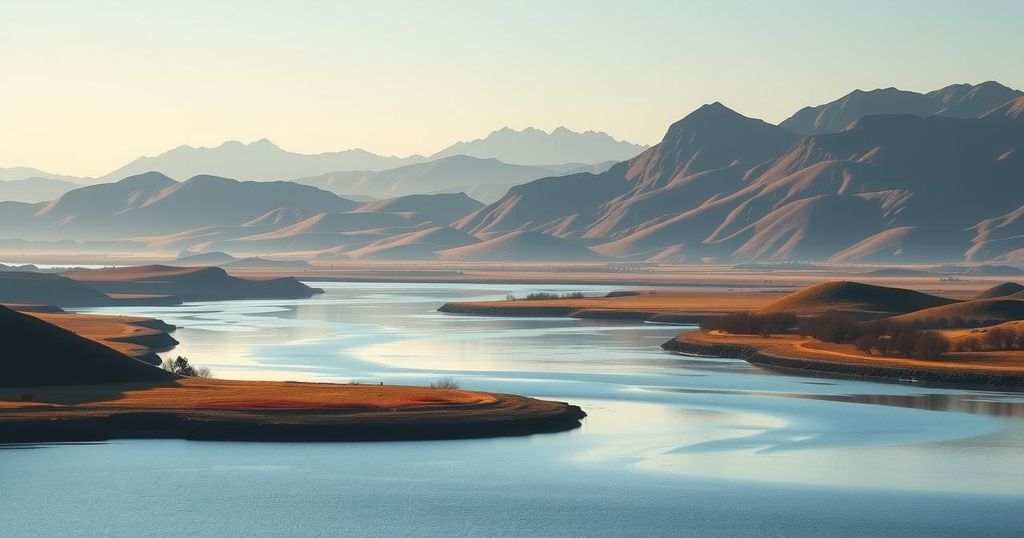Understanding the Roles of Neighboring Countries in the DR Congo Crisis

The DR Congo crisis, fueled by M23 rebels in its eastern region, has drawn multiple neighboring countries into a complex web of military and diplomatic involvement. Key players include the DR Congo itself, Rwanda, Burundi, Uganda, and South Africa, each with distinct interests and accusations against one another. The humanitarian implications are severe, necessitating urgent regional dialogue to prevent further escalation.
The ongoing insurgency by M23 rebels in eastern Democratic Republic of Congo (DR Congo) has aggravated a humanitarian crisis, instigating diplomatic interventions from neighboring nations. Various African nations, already involved militarily, are mobilizing to address the escalation of conflict around the mineral-rich regions. The region’s complexities have prompted emergency summits among regional blocs aiming to de-escalate the situation.
President Félix Tshisekedi of the DR Congo aspires to reclaim territory captured by M23 rebels and thwart their advances. He accuses Rwandan President Paul Kagame of supporting M23 with military resources, alleging territorial invasion aimed at exploiting DR Congo’s mineral resources and effecting regime change. Despite a UN report supporting these claims, international responses have been muted, leaving Tshisekedi anxious about his political future amidst fears of possible opposition uprisings.
Rwanda, under Kagame, skillfully navigates its involvement by denying support for M23 while asserting its right to defend national borders against threats originating from eastern DR Congo. Kagame argues that the actual conflict is rooted in combating armed groups affiliated with the Hutu genociders from the Rwandan genocide. He seeks diplomatic recognition of this narrative, requesting direct negotiations between Kinshasa and the M23, which Tshisekedi has resisted.
Burundi, which borders both Rwanda and DR Congo, perceives Rwanda’s activities as a potential threat to its security. President Evariste Ndayishimiye has issued warnings regarding invasion risks stemming from Rwandan advances. Burundi’s military presence in eastern DR Congo aims to confront local insurgents while also supporting Congolese forces against M23, which is vital for Burundi’s regime survival.
Uganda maintains a complex role, assisting the Congolese in combating militants yet reportedly offering tacit support to the M23. Uganda’s dual engagement has raised concerns over its aims in the region. Observers note Uganda’s desire to safeguard its interests, particularly its mineral resource gains, while managing relations with both Rwanda and the DR Congo government.
South Africa has deployed troops to a regional force aiding the Congolese army, experiencing losses due to clashes with Rwandan forces. Tensions have erupted into public disputes between Kigali and Johannesburg following accusations of Rwandan military actions leading to South African casualties. The exchange highlights divisions between East African and Southern African diplomatic strategies regarding the ongoing conflict, resulting in conflicting positions on how to resolve the crisis.
The crisis in the DR Congo exemplifies a multifaceted engagement of regional powers, with each nation pursuing distinct interests amid rising tensions. It is crucial for diplomatic efforts to address the underlying causes of instability to prevent further escalation and humanitarian fallout in the region.
The Democratic Republic of Congo has a history marked by external interventions, driven largely by the country’s immense mineral wealth. The M23 rebellion has reignited these dynamics, compelling regional actors such as Rwanda, Burundi, Uganda, and South Africa to engage directly or indirectly in the conflict. The involvement of these nations not only poses threats to regional stability but also impacts the political landscape within the DR Congo itself.
In summary, the crisis in the DR Congo showcases the intricate interplay of regional politics and military involvement, with Rwanda, Burundi, and Uganda each pursuing strategic interests that complicate the situation. President Tshisekedi’s challenges stem from both the external rebellion and internal governance issues, while other regional players manipulate the conflict for various objectives. A collaborative and meaningful dialogue is essential to address these complexities and restore peace in the region.
Original Source: www.bbc.com








